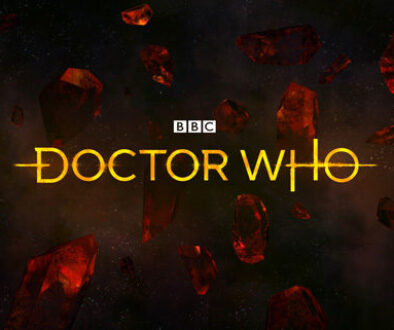2nd Opinion, Take 1 “The Vanquishers”
Gustaff Behr’s take on the sixth episode of Series 13.

We are at the end of the Flux. A six-episode season, one overarching storyline, and only sixty minutes to wrap things up properly. Does it surprise anyone in year four of this era that the answer to this basic question is a resounding ‘yes’? Let’s have a look.
First things first, I have to tip my hat off to Chris Chibnall. What other head-writer would script a story where the Sontarans destroy an entire species off-screen? I mean, come on, nobody in the audience wanted to see that. Doctor Who viewers in 2021 want to see dozens of Sontarans fail to hit a single target, despite being literally bred for war.
 It is also a staple that flash is more important than substance in Doctor Who 2021, and Chris Chibnall excelled admirably in this regard with how he used his characters. You could’ve cut Kate Stewart from the episode (she only delivers exposition), or Vinder and Bel (who bring nothing to the narrative), or even the Grand Serpent whose sole narrative purpose for this entire six-hour story (one episode of which includes rewriting UNIT’s backstory) is ‘opening the front door’ for the Sontarans to invade. A less competent writer would maybe have realized that all of this can be side-stepped with one line of dialogue, but not Chris Chibnall. Good on ya, mate!
It is also a staple that flash is more important than substance in Doctor Who 2021, and Chris Chibnall excelled admirably in this regard with how he used his characters. You could’ve cut Kate Stewart from the episode (she only delivers exposition), or Vinder and Bel (who bring nothing to the narrative), or even the Grand Serpent whose sole narrative purpose for this entire six-hour story (one episode of which includes rewriting UNIT’s backstory) is ‘opening the front door’ for the Sontarans to invade. A less competent writer would maybe have realized that all of this can be side-stepped with one line of dialogue, but not Chris Chibnall. Good on ya, mate!
I also want to talk about the character development in Flux. I was on the fence about the lack thereof in this era, but “The Vanquishers” have officially made me eat my words. I mean, look at Dan. When we first met him, he was a down-to-earth, every day bloke about to go out with a woman. Now he is a down-to-earth, every day bloke not about to go out with a woman. There is also Yaz, who used to be a police officer, who didn’t take charge of situations she was a part of, then she was a police officer again who took charge, then she wasn’t (I think), then she spent most of the finale not taking charge of any situation she found herself in. Then you have the Doctor, who started the series off by keeping secrets from her companions for no reason. And through the course of this series she realizes, for no reason, that she does want Yaz to know some of her secrets. Not only that, but the Doctor created all this conflict between her and Yaz because she wanted to know about her past and now that she holds that information, she doesn’t want to know about it. Development people! It’s that simple!
 The Sontarans, as mentioned above are finally given the respect they deserve as Doctor Who villains. But there is still the occasional comedic moment. I especially loved the corner shop scene where the bred for war commander, abandons his lifelong, borderline indoctrinated, duty to Sontar in favor of eating chocolates. Sure, this can be seen as an idiotic plot point that doesn’t make sense for Sontarans, but at least it’s funny. Oh, and we all knew the Sontarans weren’t going to win, so allowing this lone Sontaran’s lust for chocolate to be the key to defeating his species totally makes it okay. I especially adored when the Sontarans declared that they would destroy the Rutans last, their one true enemy that they have been battling for fifty thousand years. Again, this can be seen as a nonsensical plot point, but after the Daleks, Cybermen, Weeping Angels, Ood, UNIT and COVID, I can understand that there wasn’t enough budget to animate Rutans onscreen. It doesn’t make any sense, but that’s okay for reasons.
The Sontarans, as mentioned above are finally given the respect they deserve as Doctor Who villains. But there is still the occasional comedic moment. I especially loved the corner shop scene where the bred for war commander, abandons his lifelong, borderline indoctrinated, duty to Sontar in favor of eating chocolates. Sure, this can be seen as an idiotic plot point that doesn’t make sense for Sontarans, but at least it’s funny. Oh, and we all knew the Sontarans weren’t going to win, so allowing this lone Sontaran’s lust for chocolate to be the key to defeating his species totally makes it okay. I especially adored when the Sontarans declared that they would destroy the Rutans last, their one true enemy that they have been battling for fifty thousand years. Again, this can be seen as a nonsensical plot point, but after the Daleks, Cybermen, Weeping Angels, Ood, UNIT and COVID, I can understand that there wasn’t enough budget to animate Rutans onscreen. It doesn’t make any sense, but that’s okay for reasons.
Now here is where the episode starts to make a little less sense: Despite being built up as being the big baddies of the season, Swarm and Azure don’t really do much in this season except explain to the audience vaguely what their intentions are, but here’s the thing…they aren’t terribly bright. They are shown to be able to teleport spam their opponents but allow the Doctor to simply run away? They start killing the Doctor (twice!) but then stop when they remember that the show doesn’t function without her. Now, I don’t mind some fourth wall leaning, but this is taking things a little too far. Not only that, but how come Time kills them for failing to release it, but not the Doctor who did nothing to help? Is it just me or does that have the same energy as me punishing the person who fails to catch the thief that stole my property instead of the bystander who just watched it happen and did nothing at all? I will admit, this episode’s logic is a little hard to follow when you’re sober.
Also, did anyone else get the ‘He Will Knock Four Times’ rehash during the friendly conversation between the Doctor and Time? It feels like Chris Chibnall is trying to mimic that arc in the same vein that he’s tried to make the Thirteenth Doctor mimic the Tenth in general.
 Now, some things that just did not fly with me at all. Firstly, Di was first introduced as an everyday woman, but all of a sudden, when the plot needs her to be, she’s Rambo? She is an expert marksman with pinpoint accuracy the likes of which would make Sontarans drool at the mouth, but she only has Lazer Tag practice? Shouldn’t we have had a scene where it’s demonstrated she is proficient with a firearm? What about the Flux being anti-matter? The Doctor has spent every episode asking ‘what is the Flux’ and now all of a sudden she knows it’s anti-matter? When did she learn this? Why weren’t we told? I’m not gonna comment on the Doctor being split into three as my only understanding there is ‘it happened because the plot needed the Doctor in three places, so the character said something happened’. If this were any other episode in the season, I would criticize it, but this is the finale where all the plot elements introduced and played with in the previous episodes are resolved. Sorry, I mean because this is the last episode and I don’t care any more. Seriously, Big Finish just released an episode of Doctor Who that is told back to front, starting with the end credits and working itself back to the opening theme.
Now, some things that just did not fly with me at all. Firstly, Di was first introduced as an everyday woman, but all of a sudden, when the plot needs her to be, she’s Rambo? She is an expert marksman with pinpoint accuracy the likes of which would make Sontarans drool at the mouth, but she only has Lazer Tag practice? Shouldn’t we have had a scene where it’s demonstrated she is proficient with a firearm? What about the Flux being anti-matter? The Doctor has spent every episode asking ‘what is the Flux’ and now all of a sudden she knows it’s anti-matter? When did she learn this? Why weren’t we told? I’m not gonna comment on the Doctor being split into three as my only understanding there is ‘it happened because the plot needed the Doctor in three places, so the character said something happened’. If this were any other episode in the season, I would criticize it, but this is the finale where all the plot elements introduced and played with in the previous episodes are resolved. Sorry, I mean because this is the last episode and I don’t care any more. Seriously, Big Finish just released an episode of Doctor Who that is told back to front, starting with the end credits and working itself back to the opening theme.
In all seriousness though, I can appreciate a shorter season due to COVID. And I respect doing something new and unique like this. Doctor Who has not had something like Flux before, and that is a good thing. Doctor Who should try new things from time to time. But as head writer and producer of the series, it is also Chris Chibnall’s job to tell a good story with a start, a middle and an end. This series left many questions unanswered, instead using the same old ‘stick around for next time, we might tell you’ trick that Chibnall is fond of. That is not how you bait an audience to stay tuned. That’s how you waste your audience’s time. There’s nothing wrong with a little foreshadowing, but you built Tecteun up in “The Timeless Children” just to kill her off halfway through this story.








